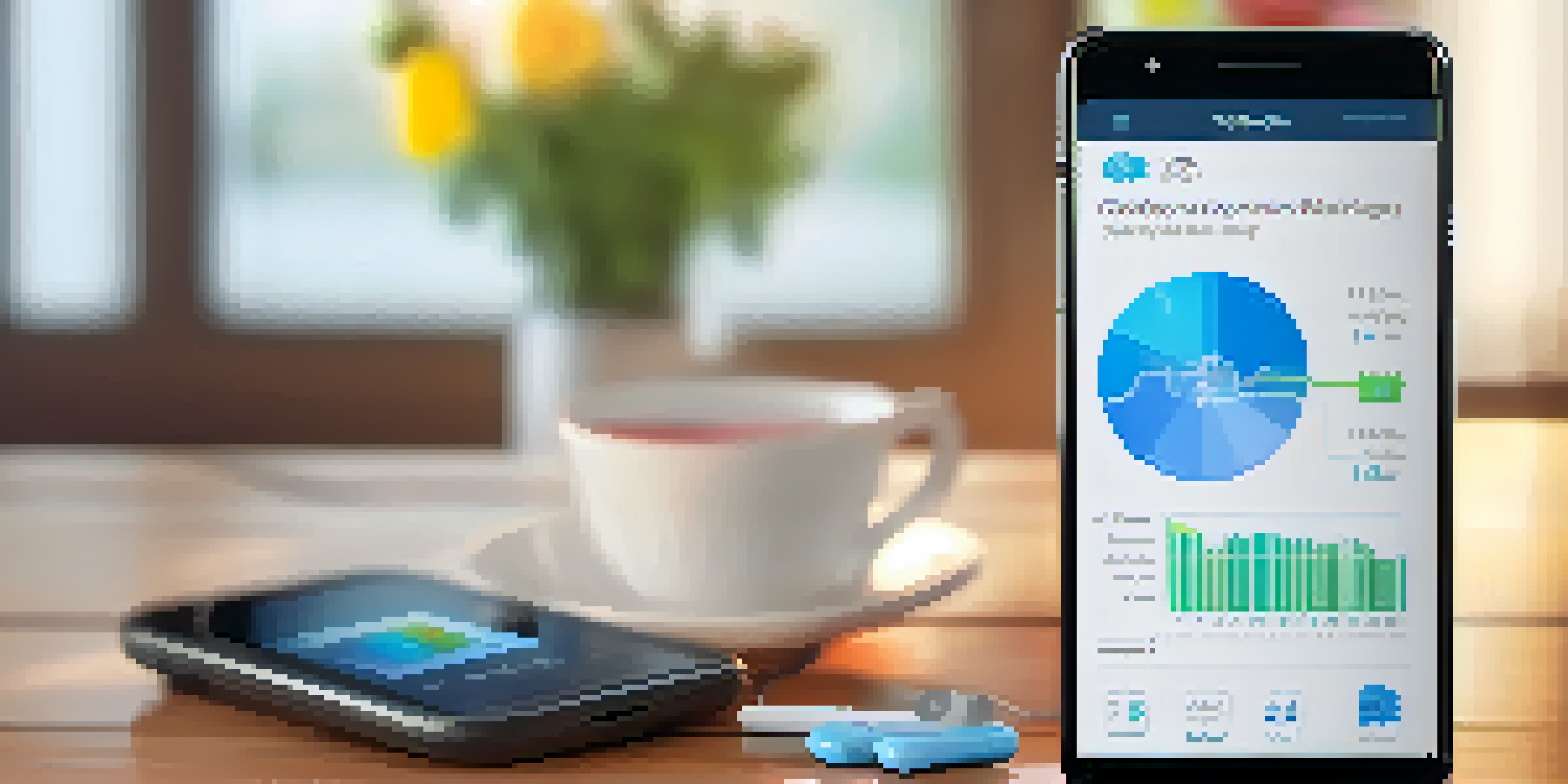Technology in Chronic Disease Management: Tools and Apps

Understanding Chronic Diseases and Their Impact
Chronic diseases, such as diabetes and heart disease, affect millions globally. These conditions are long-lasting and often require ongoing management to maintain quality of life. Understanding their impact is crucial, as they can lead to complications, higher healthcare costs, and decreased productivity.
Technology is best when it brings people together.
Patients with chronic diseases often face daily challenges, from medication adherence to lifestyle changes. This is where technology comes into play, bridging the gap between patients and healthcare providers. By utilizing various tools and apps, individuals can gain better control over their health.
For instance, tracking blood sugar levels or heart rates can be daunting without the right support. With the advent of technology, managing these diseases has become more accessible and less overwhelming. Technology empowers patients to take charge of their health journey.
The Role of Mobile Apps in Disease Management
Mobile apps have revolutionized how patients manage chronic diseases. These applications provide a platform for tracking symptoms, medications, and lifestyle choices in real time. With just a few taps on a smartphone, users can log their daily activities and health metrics effortlessly.

For example, diabetes management apps allow users to input their blood glucose readings and receive immediate feedback on their levels. This instant data can help patients make informed decisions about their diet and medication. Moreover, many apps also offer reminders for medication schedules, which can significantly improve adherence.
Chronic Diseases Require Ongoing Care
Chronic diseases like diabetes and heart disease demand continuous management to maintain quality of life and prevent complications.
The convenience of having all this information at one’s fingertips can reduce the feeling of isolation that many chronic disease patients experience. It fosters a sense of community, as some apps even allow users to connect with others facing similar challenges, creating a support network.
Wearable Technology: Monitoring Health in Real Time
Wearable technology, like smartwatches and fitness trackers, plays a pivotal role in chronic disease management. These devices monitor vital signs, such as heart rate, sleep patterns, and physical activity, providing users with valuable insights into their health. This real-time data helps patients and healthcare providers make informed decisions.
The greatest medicine of all is to teach people how not to need it.
For instance, a heart disease patient can track their heart rate variability throughout the day, identifying triggers that may lead to distress. This immediate feedback can prompt timely interventions, such as adjusting medication or modifying exercise routines. The proactive approach facilitated by wearables can lead to better health outcomes.
Additionally, wearables often integrate with mobile apps, creating a comprehensive health management system. This interconnectedness enhances patient engagement and encourages healthier habits, making the management of chronic diseases more interactive and effective.
Telehealth: Accessing Care from Anywhere
Telehealth has gained immense popularity, especially in recent years, and it’s a game-changer for chronic disease management. This technology allows patients to consult healthcare professionals remotely, eliminating travel barriers and saving time. For many, this means accessing specialists who may not be available locally.
For example, a patient with a rare chronic condition can easily connect with an expert via video call, receiving tailored advice and treatment plans without the hassle of long-distance travel. This convenience can lead to more regular check-ups and proactive management of their condition.
Technology Enhances Patient Management
Mobile apps, wearables, and telehealth services empower patients by providing tools for tracking health metrics and accessing care remotely.
Furthermore, telehealth platforms often integrate with health monitoring tools, providing doctors with real-time data to make informed decisions. This seamless flow of information helps in creating personalized care plans that adapt to the patient’s evolving health needs.
Data Analytics: Enhancing Patient Outcomes
The use of data analytics in chronic disease management is transforming healthcare delivery. By analyzing patient data collected through apps and wearables, healthcare providers can identify trends and patterns that inform treatment strategies. This data-driven approach can lead to more effective interventions.
For instance, if a large number of patients using a particular app report increased symptoms during a specific season, healthcare providers can investigate further. This insight allows for timely adjustments in treatment plans or the introduction of preventive measures, ultimately improving patient outcomes.
Moreover, predictive analytics can help identify patients at risk of complications before they occur. By proactively addressing these risks, healthcare providers can significantly reduce hospitalizations and improve the overall quality of life for patients with chronic diseases.
Patient Engagement: Empowering Individuals
Empowering patients is a fundamental aspect of chronic disease management, and technology plays a vital role in this process. Engaging patients through apps and online platforms helps them take an active role in their health journey. This empowerment leads to improved adherence to treatment plans and better health outcomes.
For example, educational resources available through health apps can inform patients about their conditions and the importance of self-management. By understanding their health better, patients can make informed decisions regarding lifestyle changes and medication adherence.
Data Analytics Improves Health Outcomes
Utilizing data analytics allows healthcare providers to tailor treatments and identify risks, ultimately enhancing patient care and outcomes.
Additionally, many apps offer gamification features, turning health management into a fun and interactive experience. This approach encourages users to set goals and celebrate their achievements, creating a positive feedback loop that motivates continued engagement.
Challenges and Considerations in Technology Use
While technology offers numerous benefits for chronic disease management, there are also challenges to consider. Not all patients may have access to the latest devices or high-speed internet, which can create disparities in care. Ensuring equitable access to these technologies is crucial for their success.
Moreover, some individuals may feel overwhelmed by the sheer volume of data generated by health apps and wearables. Without proper guidance, this information can become more confusing than helpful. Healthcare providers must play an active role in helping patients interpret and utilize this data effectively.

Another consideration is data privacy and security. Patients need assurance that their health information is protected when using digital tools. As technology continues to evolve, maintaining trust and transparency will be essential to foster patient engagement.